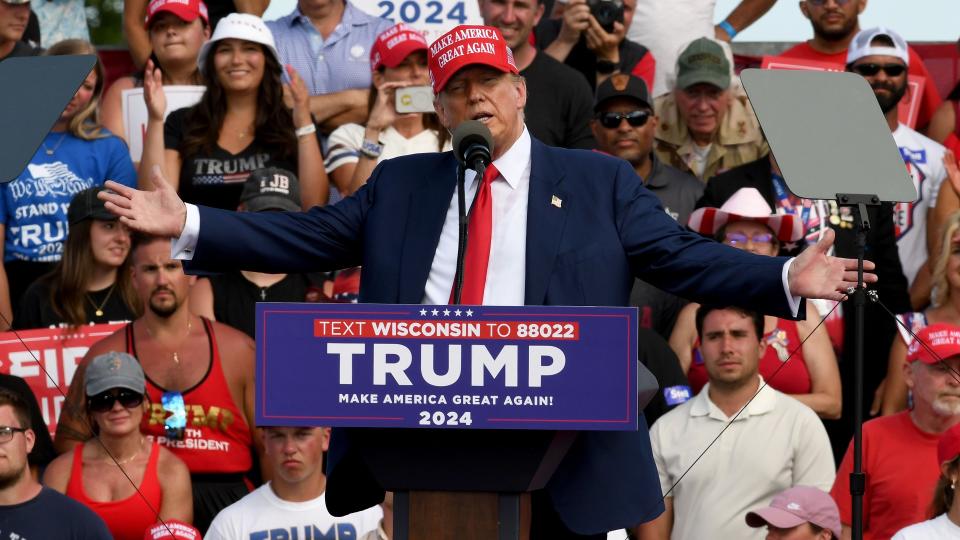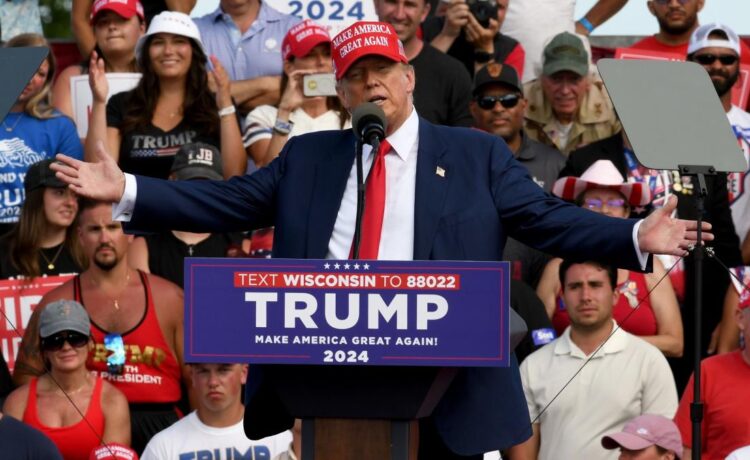
According to the Federal Reserve, the average sales price of homes sold in the U.S. was $501,700 in the second quarter of 2024. This is a $125,000 increase from five years prior and a $161,100 increase from a decade ago.
The U.S. housing market has fluctuated over the years, but the overall trend has been a steady — sometimes sharp — incline. Along with that, mortgage interest rates have risen over the years. Whereas the average rate on a 30-year fixed-rate mortgage hovered around 3% to 4% about a decade ago, it has risen to 5% to 7% over the past two years.
Learn More: 7 Reasons You Must Speak to a Financial Advisor To Boost Your Savings in 2024
Check Out: I’m an Economist — Here’s My Prediction for Social Security if Trump Wins the 2024 Election
For those who want to buy a house, knowing how much it costs is only part of the bigger picture. It’s just as important to understand what influences the price of real estate — as well as interest rates and other expenses.
With the upcoming presidential election, you might be wondering what’ll happen to the U.S. housing market in the coming years. GOBankingRates spoke with Joseph Favorito, a financial planner and managing partner at Landmark Wealth Management, to get his thoughts.
Here’s what a Donald Trump presidency could mean if you plan to buy property in 2025.
Earning passive income doesn’t need to be difficult. You can start this week.
A Trump Presidency Might Not Have Much of an Impact
Simply put, the next president might not have much of a direct impact on the U.S. housing market.
“I think the presidential election is likely to have little impact on the housing market and markets in general,” Favorito said. “Policy positions have a greater impact on the economy than the market. While they are connected, I tend to [think] of the markets and the economy more like cousins than siblings. Policy has a greater impact on the small business owner and consumer directly than it does on the national direction of homes prices or the stock market.”
That said, a Trump presidency could bring about policy changes that affect the housing market in more indirect ways — or over a longer period of time. Changes to housing supply, employment rates and the like can all impact the cost — and availability — of real estate.
In terms of policy, Trump has done a few things that could be used as a basis for predicting what might happen if he ends up back in office.
For example, Trump signed the Tax Cuts and Jobs Act of 2017 into law during his first term. This law increased after-tax income for qualifying individuals and businesses, which could mean more money for purchasing a home — though it depends on the local real estate market and other factors.
Previously, Trump also prioritized deregulation and tax cuts. This could mean greater economic growth, which could in turn increase disposable income for many Americans. This also could increase housing demand, though it might not make homes more affordable.
Discover More: Trump Wants To Eliminate Income Taxes — Here’s What That Would Mean for the Economy and Your Wallet
Supply and Demand Are Key Factors
“Housing, like any other asset class, is based on supply and demand,” Favorito said. “There is still a shortage of inventory relative to the population. That — coupled with the fact that more than 75% of existing home loans are below 5% [APR], and nearly 25% are below 3% — is keeping a good degree of supply off the market.”
A few years ago, Freddie Mac conducted a study about the housing supply shortage. In that study, Freddie Mac’s chief economist, Sam Khater, illustrated that supply was short even before the pandemic.
There was a housing shortage of approximately 2.5 million homes in 2018. In 2020, there was a shortage of around 3.8 million units. The housing stock deficit rose by about 52% during these two years.
But why did supply dip?
According to Freddie Mac, the main factors include a lack of available construction labor, land use regulations, zoning restrictions and an increase in raw material costs. A lack of entry-level homes, which first-time buyers also tend to gravitate toward, also might have led to this problem.
Don’t Forget About Interest Rates
Mortgage interest rates hit a record low in the 2010s, and a lot of people who locked in such low rates during that time are hesitant to sell because rates are so much higher now. But that’s not the only reason the housing supply is low right now — and housing prices are up. Long-term federal policies have had an impact, too.
“If you were locked in at 2.5% on a 30-year loan, you’re less likely to put your home on the market and take on a new purchase when the current rates are closer to 6%. The fact that the Fed kept rates so low for nearly two decades has led to a number of unusual market dislocations,” Favorito said. “Having such a resilient residential housing market is one of them. Ordinarily, such a big percentage increase in rates as we have seen since 2022 would have had a much bigger impact on home prices. But past policy is still keeping a lot of supply off the market.”
Housing Prices Tend To Be Regional
Regardless of whether Trump is elected president, the changes to the housing market are more likely to be regional as opposed to nationwide. They could also rise or decline.
“Housing tends to be very regional, and some areas that have had major price increases may see somewhat of a decline as the economy continues to slow,” Favorito said. “But I would be surprised if home prices fell anything like what happened in 2008, regardless of who is president. The dynamics of residential real estate looks much more stable than that of commercial real estate.”
Given that, if you’re looking to invest in commercial real estate, you may want to pay closer attention to the trends and the election. For the typical homebuyer purchasing property in 2025, the state of the local economy, current supply and interest rates may be more influential to your decision.
Editor’s note on election coverage: GOBankingRates is nonpartisan and strives to cover all aspects of the economy objectively and present balanced reports on politically focused finance stories. For more coverage on this topic, please check out I’m a Financial Planner: Here’s What a Kamala Harris Presidency Would Mean If You Plan To Buy a House in 2025.
More From GOBankingRates
This article originally appeared on GOBankingRates.com: I’m a Financial Planner: Here’s What a Trump Presidency Would Mean If You Plan To Buy a House in 2025
















